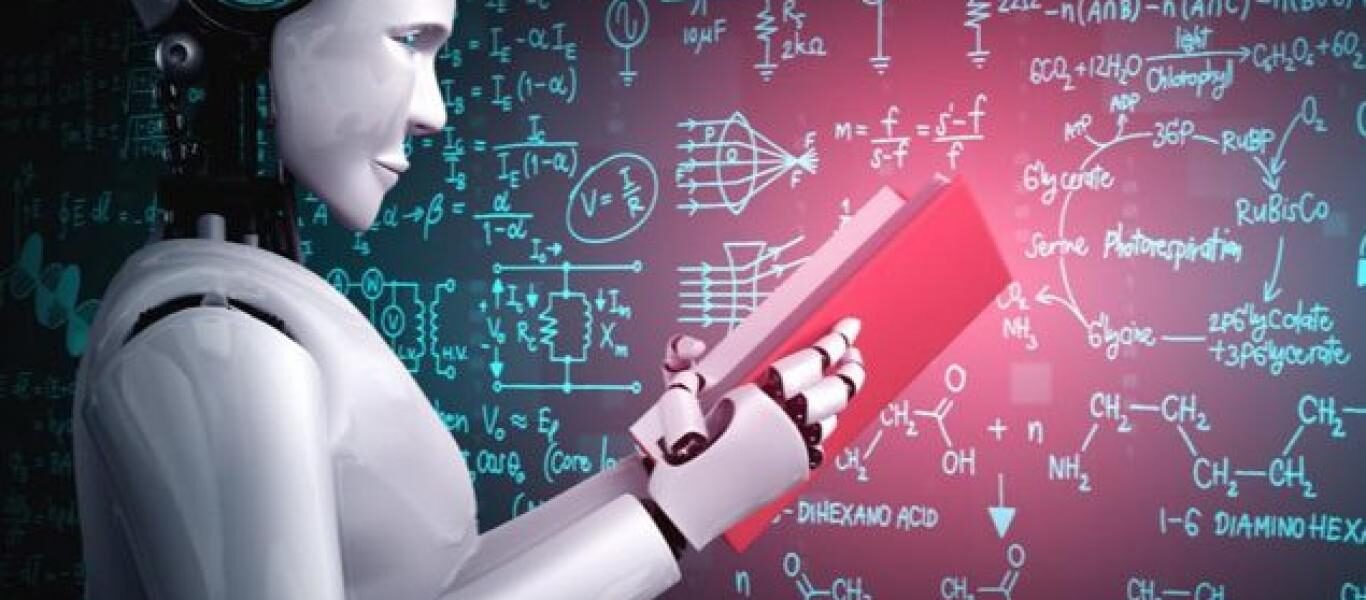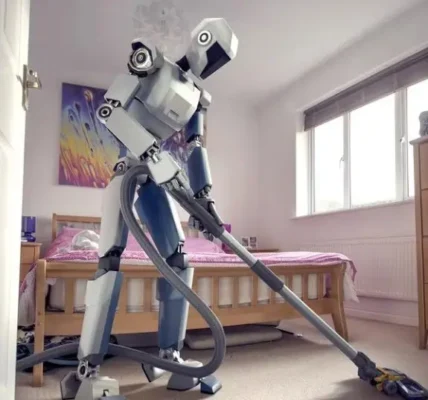In recent years, Artificial Intelligence (AI) has made its way into a variety of industries, from healthcare to entertainment. However, one of the most intriguing applications of AI is in the realm of personal computing. Enter the AI-powered PC—a new breed of computers that integrate AI technology to enhance performance, streamline tasks, and personalize user experiences. In this article, we’ll dive into what an AI PC is, how it works, and why it’s becoming a key trend in the tech world.
What is an AI PC?
An AI PC refers to a personal computer that incorporates artificial intelligence to improve its performance, security, and user experience. This integration typically involves the use of machine learning, data analytics, and deep learning technologies to help the system understand user behaviors and adapt accordingly. Unlike traditional PCs, which rely on predefined instructions, AI PCs are able to learn from interactions, optimize processes, and predict needs in real-time.

Key Features of an AI-Powered PC
AI PCs come with a range of features designed to make computing smarter, faster, and more intuitive. Here are some of the standout capabilities:
1. AI-Driven Performance Optimization
AI PCs are designed to automatically adjust and optimize system resources based on usage patterns. Whether you’re running a heavy application or multitasking with several programs, the system can allocate CPU, GPU, and memory resources dynamically to ensure smooth performance without lag.
2. Personalized User Experience
One of the most compelling features of AI PCs is their ability to adapt to individual user preferences. Through continuous learning, AI can customize settings such as screen brightness, power management, and even suggest apps based on your daily routines. Over time, the system becomes more personalized, offering a smoother and more intuitive experience.
3. Enhanced Security Features
AI PCs also offer advanced security options, such as facial recognition, voice authentication, and biometric sensors. The system can continuously monitor for unusual behavior or security threats, providing a layer of protection against unauthorized access and cyber threats.
4. Smarter Content Creation Tools
For creative professionals, AI-powered software can assist in photo editing, video production, and even content generation. AI systems can learn from user interactions and apply creative adjustments, speeding up workflows and allowing for more efficient content creation.
5. Automation of Routine Tasks
AI can automate repetitive tasks, such as scheduling meetings, managing emails, or even organizing files. This level of automation reduces the need for manual intervention and increases overall productivity.
How Do AI PCs Work?
At the core of an AI PC is a combination of hardware and software that work together to create a seamless and intelligent experience. The hardware typically includes AI-optimized processors (such as Intel’s AI-capable CPUs or AMD’s Ryzen chips) and other components like GPUs and RAM that support machine learning tasks. These hardware components are designed to handle the large volumes of data that AI algorithms process in real-time.
On the software side, AI PCs use a variety of machine learning algorithms and neural networks to learn from the data they process. The system constantly gathers information about how the user interacts with the computer, which programs are used most frequently, and even what time of day certain tasks are performed. Over time, the AI becomes more adept at predicting user needs and optimizing system performance accordingly.
The Role of Machine Learning
Machine learning plays a critical role in the functioning of AI PCs. Through continuous training and data analysis, the machine learning models embedded within the PC improve over time. For example, the system might learn to recognize the programs you use most often and prioritize them for faster launch times. Similarly, it may optimize power usage based on your habits, extending battery life for laptop users.
Real-Time Adaptability
The most notable feature of an AI PC is its ability to adapt to the user’s behavior in real-time. Whether it’s adjusting the system’s settings for optimal power efficiency or switching between tasks based on priority, the AI works behind the scenes to create a more fluid and intuitive user experience.
Why Are AI PCs Becoming Popular?
AI PCs are not just a trend—they represent the next evolution in computing. As the technology continues to advance, AI-powered computers are providing users with more intelligent, efficient, and personalized experiences. Here are several reasons why AI PCs are gaining popularity:
1. Increased Efficiency
AI PCs excel in optimizing system resources, ensuring that your PC runs smoothly even under heavy workloads. Whether you’re gaming, editing videos, or running complex simulations, the AI helps prioritize critical tasks and manage the system’s resources more efficiently.
2. Better Security
AI-driven security features offer better protection against cyber threats and unauthorized access. Facial recognition, voice authentication, and real-time threat detection help keep sensitive data safe from hackers or malware.
3. Personalization
AI PCs are highly customizable, adapting to the individual needs of the user. By learning your preferences, an AI PC can offer a truly personalized experience, making the system feel more intuitive and user-friendly. This level of personalization can make a significant difference in daily productivity.
4. Enhanced Battery Life for Laptops
AI’s ability to monitor battery usage patterns means it can adjust settings for optimal battery efficiency. For laptop users, this can result in longer battery life, making the PC more reliable when you’re working on the go.
5. Revolutionizing Content Creation
AI tools are already transforming industries like video editing, graphic design, and music production. AI-powered PCs offer advanced features that speed up content creation by automating time-consuming tasks, allowing creatives to focus on their craft.
Current Trends in AI PCs
The market for AI-powered PCs has been growing steadily, with leading manufacturers like Dell, HP, Lenovo, and Microsoft integrating AI technology into their latest models. From consumer laptops to professional workstations, AI is becoming a key feature that differentiates devices in an increasingly competitive market.
AI PCs are particularly popular among gamers, content creators, and business professionals, as the technology enhances performance and productivity. With continuous advancements in AI, we can expect more innovative devices that push the boundaries of what personal computing can achieve.
How Much Do AI PCs Cost?
The cost of AI-powered PCs can vary significantly depending on the specifications and the level of AI integration. Here’s a breakdown of the typical price range for different types of AI PCs as of 2024:
| Type of AI PC | Price Range (USD) | Features |
|---|---|---|
| Entry-Level AI Laptop | $600 – $900 | Basic AI functionality, suitable for everyday tasks, lightweight design |
| Mid-Range AI Laptop/PC | $1,000 – $1,500 | Includes AI-driven performance optimization, better battery life, and improved user interface |
| High-End AI Laptop/PC | $1,500 – $3,000 | Powerful processors, advanced AI features for creative tasks, top-tier hardware |
| AI-Powered Gaming PC | $2,000 – $4,000 | AI-driven gaming optimization, real-time performance monitoring, and high-end GPU acceleration |
| Professional Workstation AI PC | $3,000 – $6,000+ | High-performance GPUs, AI for content creation, enhanced security features |
Key Factors That Influence Price
- Processor: AI PCs with more advanced CPUs, such as Intel Core i9 or AMD Ryzen 9, tend to be more expensive.
- Graphics Card (GPU): High-performance GPUs (like NVIDIA’s RTX series) are crucial for tasks like gaming and content creation and significantly increase the cost.
- Memory and Storage: PCs with more RAM and faster SSD storage options are generally pricier.
- AI Features: The inclusion of cutting-edge AI capabilities—like voice recognition, predictive performance, and automated workflows—can also add to the cost.
AI PCs are the Future of Personal Computing
The introduction of AI-powered PCs marks a significant leap forward in personal computing technology. By integrating machine learning and artificial intelligence into their core functions, these PCs are able to offer a more efficient, secure, and personalized experience. As AI technology continues to evolve, we can expect these devices to become even smarter, further enhancing both professional and personal computing.
Whether you’re a gamer, content creator, or business professional, AI PCs are poised to make a lasting impact, transforming the way we interact with technology. With improved performance, smarter security, and greater personalization, the future of personal computing is undeniably AI-driven.



